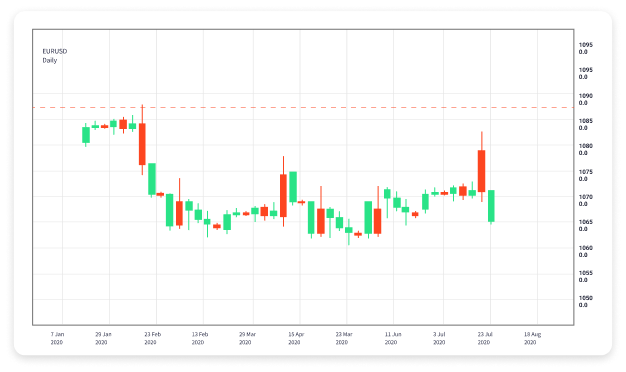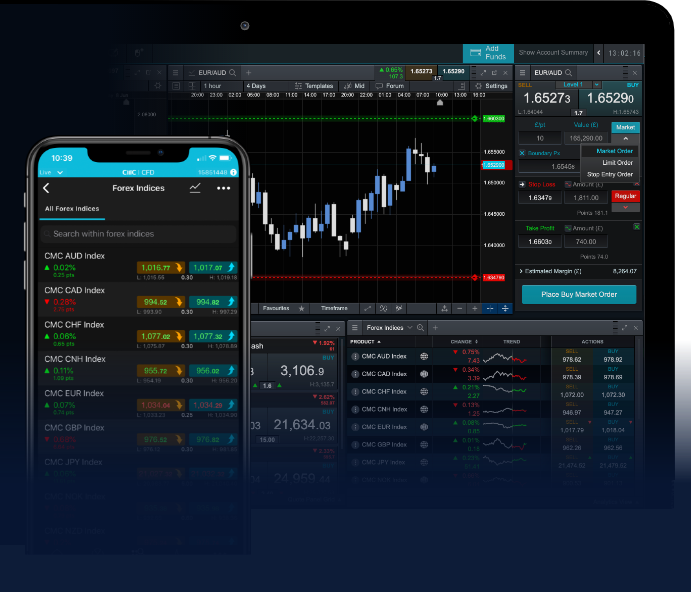Mastering Currency Trading A Comprehensive Guide to Forex Success 1701256141

In the dynamic world of finance, currency trading, commonly known as Forex (foreign exchange), stands out as one of the most popular trading markets. With daily trading volumes exceeding $6 trillion, Forex presents unique opportunities for traders to engage in buying and selling currencies. Whether you are a seasoned trader or a beginner, understanding the nuances of Forex trading is crucial for achieving success. This guide will delve into the fundamentals of currency trading, strategies to enhance your skills, and essential tips for navigating this complex market. Additionally, for brokers and resources, an excellent reference is currency trading forex Forex Brokers in Kuwait, particularly for those based in the region.
Understanding Forex Trading
Forex trading involves exchanging one currency for another, with the goal of making a profit from changes in currency values. Currencies are traded in pairs, for example, EUR/USD (Euro/US Dollar) or USD/JPY (US Dollar/Japanese Yen). The first currency in the pair is known as the base currency, and the second is the quote currency. The price of a currency pair reflects how much of the quote currency is needed to purchase one unit of the base currency.
The Forex Market Structure
The Forex market operates as a decentralized global marketplace, meaning there is no central exchange where transactions occur. Instead, trading takes place over-the-counter (OTC), allowing for 24-hour access from anywhere in the world. The market consists of several participants, including:
- Central Banks: They manage national monetary policies and can significantly influence currency values.
- Commercial Banks: As the primary players in the Forex market, they facilitate trades for large corporations and individual investors.
- Institutional Investors: Hedge funds and investment firms engage in Forex trading to diversify their portfolios.
- Retail Traders: Individual traders who participate in the Forex market using online trading platforms.

Types of Analysis in Forex Trading
Successful Forex trading relies heavily on analysis to inform trading decisions. Traders typically utilize one or more of the following types of analysis:
1. Fundamental Analysis
This approach focuses on economic indicators, geopolitical events, and monetary policies that can affect currency values. Economic data such as GDP, unemployment rates, inflation, and interest rates can provide insights into a currency’s potential direction. Understanding how these factors interact can help traders anticipate market movements.
2. Technical Analysis
Technical analysts study historical price charts and patterns to predict future price movements. They use various indicators, including moving averages, oscillators, and support and resistance levels, to identify potential entry and exit points. Technical analysis is particularly useful for short-term trading strategies.
3. Sentiment Analysis
This method gauges the overall attitude of traders toward a particular currency pair. Tools like the Commitment of Traders (COT) report can help traders understand whether the market is bullish or bearish, allowing them to align their strategies accordingly.
Trading Strategies for Forex
Effective trading strategies are essential for success in the Forex market. Here are a few popular strategies that traders often employ:

1. Day Trading
Day trading involves making numerous trades within a single day, aiming to capitalize on small price movements. Day traders usually close all their positions by the end of the trading day to avoid overnight risk.
2. Swing Trading
Swing traders hold positions for several days or weeks to take advantage of longer-term price movements. This strategy requires a good understanding of technical analysis and market trends.
3. Position Trading
This long-term strategy involves holding trades for several months or even years. Position traders rely heavily on fundamental analysis and economic indicators to guide their trading decisions.
4. Scalping
Scalping is a strategy focused on making small profits from numerous trades throughout the day. Scalpers typically hold positions for a few seconds to a couple of minutes, requiring quick decision-making and execution.
Risk Management in Forex Trading
Risk management is a crucial aspect of Forex trading. It helps traders protect their capital and minimize losses. Here are some key risk management practices:
- Use Stop-Loss Orders: Setting stop-loss orders allows traders to automatically exit a position once it reaches a predetermined loss level.
- Diversification: Diversifying a trading portfolio across different currency pairs or asset classes can mitigate risks associated with a single investment.
- Manage Position Sizes: Calculating appropriate position sizes based on account size and risk tolerance helps manage potential losses.
- Maintain a Trading Journal: Keeping a journal of trades, including the rationale behind each trade and its outcome, can provide valuable insights for future trading decisions.
Selecting a Forex Broker
Choosing the right Forex broker is vital for successful trading. Factors to consider include:
- Regulation: Ensure the broker is licensed and regulated by a reputable authority.
- Trading Platforms: Consider the broker’s trading platform features, such as ease of use, tools, and resources available.
- Spreads and Commissions: Understand the broker’s costs, including spreads and commissions, which can impact trading profitability.
- Customer Support: Reliable customer support can assist traders with any issues that may arise.
Conclusion
Currency trading in the Forex market offers numerous opportunities for traders willing to put in the time and effort to learn. By understanding the market structure, employing effective trading strategies, and managing risks efficiently, traders can navigate the complexities of Forex trading. Remember to continually educate yourself and adapt your strategies as market conditions change. Whether you are trading for a living or as a hobby, the skills acquired along your Forex trading journey can lead to significant financial gains and personal satisfaction.
Leave a reply